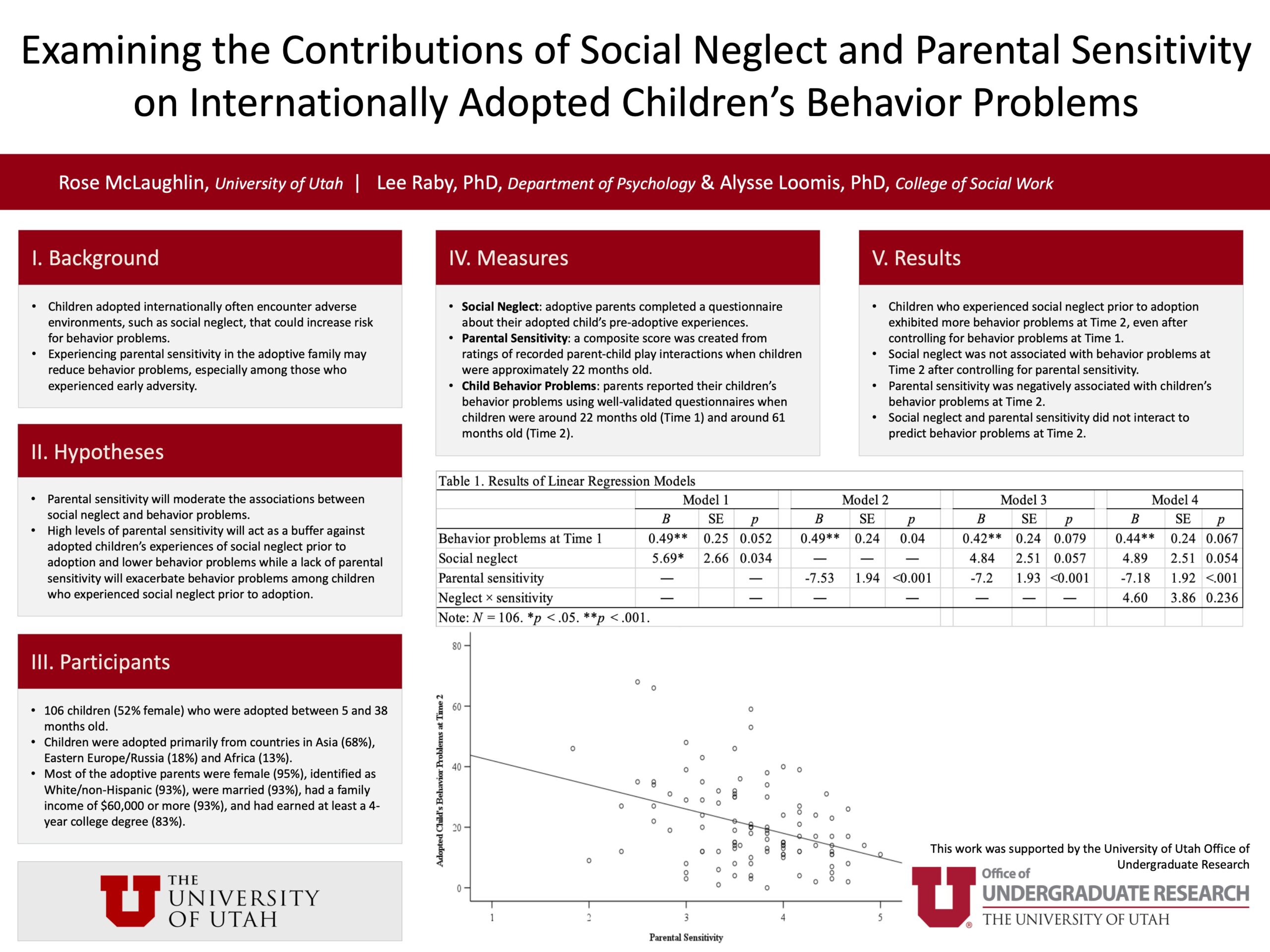Presenter Name: Rose McLaughlin
Description
Children adopted internationally often encounter adverse environments prior to adoption that can potentially harm their development. For example, many internationally adopted children experience social neglect while living in institutional settings because there are not enough (Dozier et al., 2012). Social neglect, in particular, has been linked to high rates of behavior problems among internationally adopted children (Gunnar et al., 2007). The present research project tested the hypothesis that high levels of parental sensitivity act as a buffer and lower behavior problems among adopted children who experienced social neglect prior to adoption, while low levels of parental sensitivity exacerbate behavior problems among children with pre-adoption experiences of social neglect. The sample included 106 children (52% female) who were adopted internationally by families living in the United States. The children were primarily adopted from countries in Asia (68%), Eastern Europe/Russia (18%), and Africa (13%) when they were between 4.8 months and 37.8 months old. The results of the linear regression analyses indicated that children who experienced social neglect prior to adoption exhibited more behavior problems at Time 2, even after controlling for initial behavior problems at Time 1. However, there was not a significant association between social neglect and later behavior problems after controlling for parental sensitivity. In contrast, parental sensitivity was negatively associated with adopted children's behavior problems at Time 2 before and after controlling for social neglect prior to adoption. Contrary to our hypothesis, the association between parental sensitivity and later behavior problems was not moderated by whether the child experienced social neglect. These findings may help inform the ways in which adoption agencies and service providers assist current and prospective adoptive parents prepare to care for their children.
University / Institution: University of Utah
Type: Poster
Format: In Person
Presentation #A63
SESSION A (9:00-10:30AM)
Area of Research: Social Sciences
Email: u1178960@utah.edu
Faculty Mentor: Lee Raby

